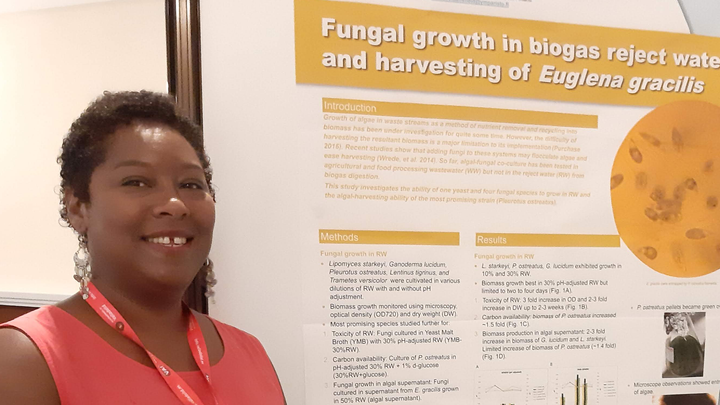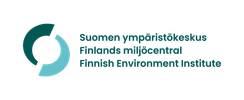Utilising fungi to recycle nutrients from food industry wastewater
A recent doctoral dissertation explored a new cost-effective fungal-based treatment solution that converts nutrients from food industry wastewater into valuable biomass. This method simultaneously removes nutrients from wastewater and reduces environmental impacts. The dissertation by Danielle Bansfield, a researcher at the Finnish Environment Institute, will be examined at Aalto University on Friday, 7th March 2025, at 12:00.

"Fungal-based wastewater treatment is a significant step towards a sustainable and circular bioeconomy, benefiting all stakeholders. The food industry gains cost savings and additional revenue, while water bodies in areas with weaker regulations are protected from untreated discharges. Additionally, the capture and recycling of nutrients from the wastewater into usable biomass promotes circularity", summarises researcher Danielle Bansfield from the Finnish Environment Institute.
There is great demand for circular wastewater treatment methods in the food industry, which produces large amounts of nutrient-rich wastewater, which is either treated at wastewater plants or, in some regions, discharged untreated, causing environmental harm. Traditional treatment removes nutrients but does not recover them. Given rising demand and climate change-driven resource scarcity, reusing both nutrients and water is increasingly important.
Different fungi optimal for biofuel, feed, or dietary supplement production
The dissertation results are promising. The study identified Penicillium corylophilum as the most effective species for nutrient removal and biomass production, and the biomass was found to be a suitable feedstock for biofuel. Geotrichum candidum showed potential for feed or dietary supplements. Among the five food production waste streams investigated, whey proved to be the best growth medium.
Another application for the fungal biomass, fungal-assisted microalgal harvesting, was investigated. Fungal-based microalgal harvesting is more sustainable than traditional microalgal harvesting methods, which are chemical and energy-intensive. During the study, a new, more rapid and resource-efficient fungal-assisted microalgal harvesting method was developed.
Practical applications: a significant opportunity for the food industry and circular economy
Utilising fungi in food industry wastewater treatment presets significant opportunities for further development and industrial applications, offering early adopters a competitive advantage.
Such innovations are essential for the sustainability transition. Implementing nutrient recovery from wastewater and converting it into valuable bioproducts would advance the circular bioeconomy. While challenges remain, this research provides a strong foundation for future progress.
Dissertation defence and thesis
- Time: Friday, 7th March 2025, 12:00–15:00
- Place: Computer Science Building, Aalto University, Otaniemi, Konemiehentie 2, 02150 Espoo. Online (aalto.zoom.us)
- Event Language: English
- Event page: Public defence in Water and Environmental Engineering, M.Sc. Danielle Bansfield (aalto.fi)
- Thesis: Pioneering circular pathways: improved recycling of nutrients in industrial wastewaters into value-added products. Thesis available for public display 10 days prior to the defence.
Further Information
Researcher Danielle Bansfield, Finnish Environment Institute (Syke), tel. +358 295 251 934, firstname.lastname@syke.fi
Keywords
Contacts
Media service at Finnish Environment Institute
Our Media Service provides information on research, helps journalists find experts for interviews and provides photos for media use.
Our Communication experts will answer your inquiries on weekdays from 9 am to 4 pm.
Finnish Environment Institute - We build hope through research.
Finnish Environment Institute
Latokartanonkaari 11
00790 Helsinki
+358 295 251 000
It is time to move beyond solving environmental problems one by one, to systemic sustainability transformations. The Finnish Environment Institute (Syke) contributes to building a sustainable society through research, information and services. The Finnish Environment Institute is a research institute with 700 experts and researchers located in Helsinki, Oulu, Jyväskylä and Joensuu.

Subscribe to releases from Suomen ympäristökeskus
Subscribe to all the latest releases from Suomen ympäristökeskus by registering your e-mail address below. You can unsubscribe at any time.
Latest releases from Suomen ympäristökeskus
Vuoden 2026 alusta voimaan astuvat F-kaasuja koskevat uudet rajoitukset ja velvoitteet29.12.2025 16:03:26 EET | Tiedote
Vuosi 2026 tuo rajoituksia fluorattujen kasvihuonekaasujen (F-kaasujen) käytölle ilmastointilaitteiden ja lämpöpumppujen huollossa, desfluraanin käyttöön inhalaatioanesteettina ja uusia F-kaasuihin liittyviä laitekohtaisia kieltoja.
Nuoret vaativat merkittäviä muutoksia ruuan kulutukseen ja tuotantoon16.12.2025 12:00:00 EET | Tiedote
Nuorten ruokaraati vaatii avointa ja tutkittua tietoa ruuasta – sen alkuperästä, tuotantotavoista ja vaikutuksista ilmastoon, luontoon ja hyvinvointiin. Ilman selkeitä faktoja vastuulliset kulutusvalinnat eivät ole mahdollisia. Nuoret luovuttavat kannanottonsa kansalliseen ruokastrategiaan 2040 maa- ja metsätalousministeriön tilaisuudessa 16.12.2025.
Kommunernas utsläpp fortsätter minska – trafikens andel av utsläppen ökar16.12.2025 06:00:00 EET | Pressmeddelande
Enligt förhandsberäkningsuppgifterna för 2024 minskade Finlands växthusgasutsläpp enligt Hinku-beräkningsreglerna med cirka fem procent jämfört med föregående år. På lång sikt har utsläppen sedan år 2005 minskat med 40 procent och jämfört med år 1990 med 43 procent.
Kuntien päästöt laskevat edelleen – liikenteen osuus päästöistä kasvaa16.12.2025 06:00:00 EET | Tiedote
Vuoden 2024 ennakkolaskentatietojen perusteella Hinku-laskentasääntöjen mukaiset Suomen kasvihuonekaasupäästöt laskivat noin viisi prosenttia edelliseen vuoteen verrattuna. Pitkällä aikavälillä vuodesta 2005 lähtien päästöt ovat vähentyneet 40 prosenttia ja vuoteen 1990 verrattuna 43 prosenttia.
Viikkokatsaus 15.–19.12.202511.12.2025 12:59:58 EET | Tiedote
Hei! Tässä tiedoksesi meillä Suomen ympäristökeskuksessa ensi viikolla ilmestyviä tiedotteita, uutisia, kampanjoita, blogeja ja uutiskirjeitä. Mukana myös tulevia tapahtumia ja webinaareja. Jakelemme viikkokatsauksen torstaisin STT:n kautta. Koosteet löytyvät myös STT-uutishuoneesta, josta voit tilata kaikki Suomen ympäristökeskuksen tiedotteet.
In our pressroom you can read all our latest releases, find our press contacts, images, documents and other relevant information about us.
Visit our pressroom